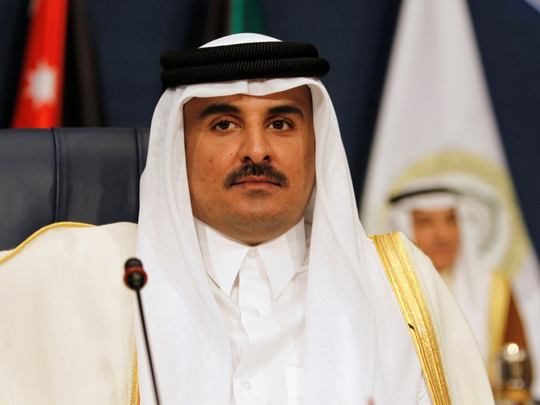
The decision to cut off ties with Qatar reflects the magnitude of the crisis, said the UAE’s Al Bayan.
“Qatar never responded to political messages that have been delivered through different channels, urging it to abandon its policies of financing terrorism, as well as supporting bloody chaos in Arab nations financially, politically and through its media. Qatar also did back out from its secret alliance with Iran, which threatens the security of the Gulf and Arab nations. These policies actually reflect political weakness and an attempt to attain a make-believe regional leadership at the expense of Arab blood. The damage caused by Doha’s policies affected Qataris, first and foremost, and the rest of the Arab population. It also reflects a very bad assessment of a reality: Qatar’s Arab neighbours do not accept these policies.”
The decision to cut ties with Qatar was not a hasty one, because all the countries involved in the decision were patient for many years with the country’s practices in the Arab world, said Egypt’s Al Ahram.
“Patience has truly run out with Qatar, which used Al Jazeera TV channel as a media platform against Arab countries, as confirmed by statements made by the channel’s various correspondents and broadcasters. There are many documents that prove that Qatar’s goal is to support terrorism and shelter the leaders of terrorist groups.
“Qatar cannot deny this. Doha was informed about court rulings issued against the Muslim Brotherhood leaders, and yet Qatar continues to shelter and provide them with financial, political and economic support. Indeed, the Arabs have been patient when it came to the policies of Qatar, and that is why the decision made by Egypt and other Arab capitals is a wise one, in light of the Qatari leadership’s persistence on taking a path that opposes Egypt.”
All eyes were on Saudi Arabia’s King Salman Bin Abdul Aziz, wondering how he would deal with Qatar, while he, in turn, waited for Qatar to explain its actions, said Saudi Arabia’s Al Yaum.
“Qatar continued to execute its policy of crashing with whatever it is that Riyadh proposes in summits for anti-terrorism, cutting off support to extremist organisations and militias and closing doors before countries that support such organisations.
“However, the Qatari government instead concerned itself with the search for intermediaries instead of apologising and implementing practical solutions concerning its stand, so that it can once again return among the ranks of the Gulf and Arabs. All things considered, it is only natural that a resolute leader like King Salman chose to take such firm decisions against Qatar.”
The London-based Pan-Arab paper Asharq Al Awsat noted that for 21 years, Qatar disregarded all concepts of Gulf unity and neighbourly behaviour. “In 2014, the Emir of Qatar pledged and agreed to the Riyadh agreement to end his country’s harmful policies. Yet, and as usual, it didn’t commit to any of its pledges and ambassadors were withdrawn during that time. Interference in internal affairs and creating chaos and instability became intolerable.
Six countries therefore decided to cut all diplomatic relations with Qatar in an attempt to end Doha’s disastrous methods and unprecedented isolation. The surprise did not lie in severing diplomatic relations, seen as a harsh and unavoidable solution, but in Gulf countries’ tolerance of the damage of Qatar’s foreign policy for two decades. This is a chance for Qatar to wake up, return to its senses and change its political strategy. If Doha did that tomorrow, then it will be welcomed with open arms before open borders,” the paper said.




_resources1_16a31069e4e_small.jpg)







